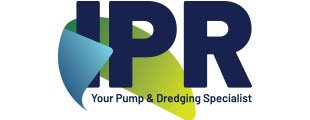

Greater move towards dewatering Pump Rental
In what is probably the most exciting development in the dewatering pump industry is the news that IPR (Integrated Pump Rental) has become part of Atlas Copco’s Specialty Rental Division within the Power Technique Business Area. Announced just ahead of Electra Mining Africa, this acquisition is expected to bring significant benefits to the mining sector.
Lee Vine, Managing Director of IPR, says the mining industry, known for its complex and demanding operations, relies heavily on effective water management solutions to ensure operational efficiency and safety.
“We have seen a shift where dewatering pumps, essential for managing water ingress and maintaining dry working conditions, are increasingly being rented with appropriate accessories,” he says. “This trend is driven by several factors that reflect the evolving needs and challenges of the mining sector and our recent acquisition by Atlas Copco will allow us to continue to grow both our geographic footprint in Africa while increasing our already comprehensive dewatering pump rental fleet.”
The company’s recent participation at Electra Mining Africa highlighted some of the pumps within its extensive range. This included Atlas Copco diesel self-priming pumps and submersible units as well as the range of Toyo heavy duty slurry pumps and IPR’s in-house designed SlurrySucker dredging unit.
“It is a fact that renting dewatering pumps offers mining companies a significant degree of flexibility,” Vine explains. “Instead of committing substantial capital to purchase equipment, companies can allocate resources more efficiently by renting dewatering pumps as needed. This approach allows for better financial planning and reduces the burden of maintenance and storage costs associated with owning dewatering equipment.”
Vine says the rental market for dewatering pumps is highly competitive, and IPR has stayed ahead of the curve by continuously updating its rental fleet to include the latest technological advancements. This, he says, means end-users benefit from access to state-of-the-art pumps that offer improved efficiency, reliability and environmental performance.
“Feedback from our customers underscores the major advantage that renting offers in terms of being able to leverage the newest technology without the need for frequent capital expenditures,” he says.
Another important advantage when renting dewatering and other pump solutions is that the mining operations can choose pumps that are tailored to the specific requirements of their projects. Whether the need is for high volume water removal, handling abrasive materials or operating in challenging conditions, IPR offers a diverse range of pump types and configurations which ensures that the most suitable equipment is selected for specific application needs.
IPR offers the market the advantage of comprehensive maintenance and support services, ensuring rented pumps and ancillary equipment remain in optimal working condition. “This reduces downtime and the risk of operational disruptions due to equipment failure,” Vine says. “Additionally, our experienced and skills team can provide valuable insights and assistance, further enhancing the efficiency of dewatering operations.”
“The ability to scale dewatering solutions up or down based on project demands is another significant advantage when renting pumps. This is important for both underground and surface mining operations, which often face fluctuating water management needs, as they can quickly adjust their dewatering capacity by renting additional pumps or returning underutilised equipment,” he continues. This scalability ensures that mining companies can respond rapidly to changing conditions without the delays associated with procuring new equipment.
The IPR rental fleet comprises modern dewatering pumps designed to meet stringent environmental and regulatory standards. By renting newer models, mining companies can ensure compliance with environmental regulations, reducing the risk of penalties and contributing to sustainable mining practices. Advanced features such as energy-efficient motors and reduced emissions are increasingly called for, and the company can accommodate these requirements.

